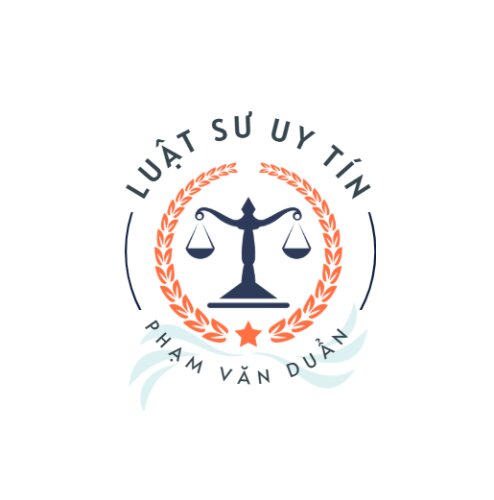Best Restructuring & Insolvency Lawyers in Dong Nai
Share your needs with us, get contacted by law firms.
Free. Takes 2 min.
List of the best lawyers in Dong Nai, Vietnam
About Restructuring & Insolvency Law in Dong Nai, Vietnam
Restructuring and insolvency law in Dong Nai, Vietnam, is governed by a combination of national legislation, local regulations, and practice procedures. The laws are designed to address situations where businesses face financial distress, helping companies adjust their structure, reorganize operations, or, in some cases, proceed with bankruptcy. Dong Nai, as a dynamic economic region, has a significant number of manufacturing and service enterprises that may encounter financial difficulties, making knowledge of restructuring and insolvency procedures highly relevant for business owners, creditors, and investors. The process aims to balance the interests of debtors, creditors, and the broader community, either through business recovery or orderly liquidation.
Why You May Need a Lawyer
Dealing with restructuring and insolvency can be complex, especially when managing obligations to multiple creditors, negotiating debt settlements, restructuring a company, or handling court proceedings. Common scenarios where legal assistance is crucial include:
- Facing prolonged cash flow problems or unable to pay debts on time
- Wanting to explore company restructuring to avoid insolvency
- Being threatened with creditor lawsuits or asset seizure
- Looking to file for bankruptcy or liquidation
- Seeking to protect personal assets as a business owner
- Negotiating with banks, suppliers, or employees regarding outstanding debts
- Dealing with cross-border debts and foreign creditor claims
- Needing to understand your rights and obligations under Vietnamese law
A qualified lawyer can guide you through legal requirements, prepare necessary documentation, represent you in negotiations or court, and protect your interests throughout the process.
Local Laws Overview
Vietnamese legal framework on restructuring and insolvency mainly comes from the Law on Bankruptcy 2014, guidance from the Supreme People's Court, and supporting regulations. In Dong Nai, local authorities and courts closely follow these national laws but sometimes apply their own procedural rules.
Key legal features include:
- Debtors and creditors are both permitted to initiate bankruptcy proceedings
- A company is considered insolvent if it fails to pay due debts within three months of the due date
- The court plays a central role in accepting cases, appointing asset managers, and overseeing the process
- Asset recovery and restructuring options are available before full liquidation
- Creditors' claims are settled according to a regulated order of priority
- The process to recover debts and enforce security interests is supervised by the court
- Debtors may have a chance to propose a recovery plan and work with creditors to restructure debts
- There are strict timelines for lodging claims and objections
- Worker rights and social obligations are also part of the process
- Local authorities have roles in both business support and enforcement of court judgements
Frequently Asked Questions
What is the difference between restructuring and insolvency?
Restructuring involves reorganizing a company's structure, debts, or operations to restore financial health, whereas insolvency refers to a legal state where a company cannot pay its debts and may face formal bankruptcy proceedings.
Who can file for bankruptcy in Dong Nai?
Both the company itself and creditors can apply to the People’s Court in Dong Nai to initiate bankruptcy proceedings if the company is unable to pay overdue debts.
What are the first steps if my company is unable to pay its debts?
You should consult a lawyer, assess your company's financial position, and review all debts. Early legal advice increases your options, such as restructuring negotiations or initiating bankruptcy to avoid liabilities.
How long does the insolvency process take in Dong Nai?
Timeframes can range from several months to over a year, depending on the complexity of the company’s financial situation and court procedures.
What happens to employees if a company goes bankrupt?
Employees are protected by law. Outstanding salaries, severance, and social insurance obligations are prioritized when the company’s assets are distributed.
Can personal assets of business owners be at risk during insolvency?
For sole proprietorships, personal assets may be used to pay debts. For limited liability companies and joint stock companies, liability is typically limited to company assets unless owners have provided personal guarantees.
Are foreign creditors treated equally in bankruptcy proceedings?
Yes, Vietnamese law ensures both domestic and foreign creditors’ rights in bankruptcy processes, but some procedural requirements may differ.
Can a company still operate during restructuring or insolvency?
In most cases, a company can continue to operate temporarily while a restructuring plan is considered or until the court issues a final order.
Is mediation or negotiation possible instead of bankruptcy?
Yes, companies and creditors often reach out-of-court settlements, debt rescheduling, or restructuring agreements to avoid formal bankruptcy where possible.
How can creditors protect their interests during a bankruptcy case?
Creditors should promptly file their claims with the court, participate in creditor meetings, and monitor court proceedings with legal assistance to ensure their interests are represented.
Additional Resources
Those seeking assistance in Dong Nai may find the following resources helpful:
- Dong Nai Department of Planning and Investment - Guidance and information for businesses in distress
- Dong Nai People’s Court - Handles bankruptcy petitions and insolvency cases
- Vietnam Chamber of Commerce and Industry (VCCI) Dong Nai - Business support and legal referrals
- Legal aid centers and local lawyers experienced in business restructuring
- Local business associations for information on financial health and peer support
Next Steps
If you or your business are facing financial distress, it is crucial to take early action. Start by gathering your financial documentation and seeking the advice of a local restructuring and insolvency lawyer who is familiar with Dong Nai’s procedures. A lawyer can help you understand your options, represent your interests, and ensure compliance with all legal requirements throughout the restructuring or insolvency process. Additionally, keep an open line of communication with creditors and employees and consider contacting local authorities or business associations for further support. Early intervention and the right legal guidance can make a significant difference in protecting your rights and achieving the best possible outcome.
Lawzana helps you find the best lawyers and law firms in Dong Nai through a curated and pre-screened list of qualified legal professionals. Our platform offers rankings and detailed profiles of attorneys and law firms, allowing you to compare based on practice areas, including Restructuring & Insolvency, experience, and client feedback.
Each profile includes a description of the firm's areas of practice, client reviews, team members and partners, year of establishment, spoken languages, office locations, contact information, social media presence, and any published articles or resources. Most firms on our platform speak English and are experienced in both local and international legal matters.
Get a quote from top-rated law firms in Dong Nai, Vietnam — quickly, securely, and without unnecessary hassle.
Disclaimer:
The information provided on this page is for general informational purposes only and does not constitute legal advice. While we strive to ensure the accuracy and relevance of the content, legal information may change over time, and interpretations of the law can vary. You should always consult with a qualified legal professional for advice specific to your situation.
We disclaim all liability for actions taken or not taken based on the content of this page. If you believe any information is incorrect or outdated, please contact us, and we will review and update it where appropriate.










